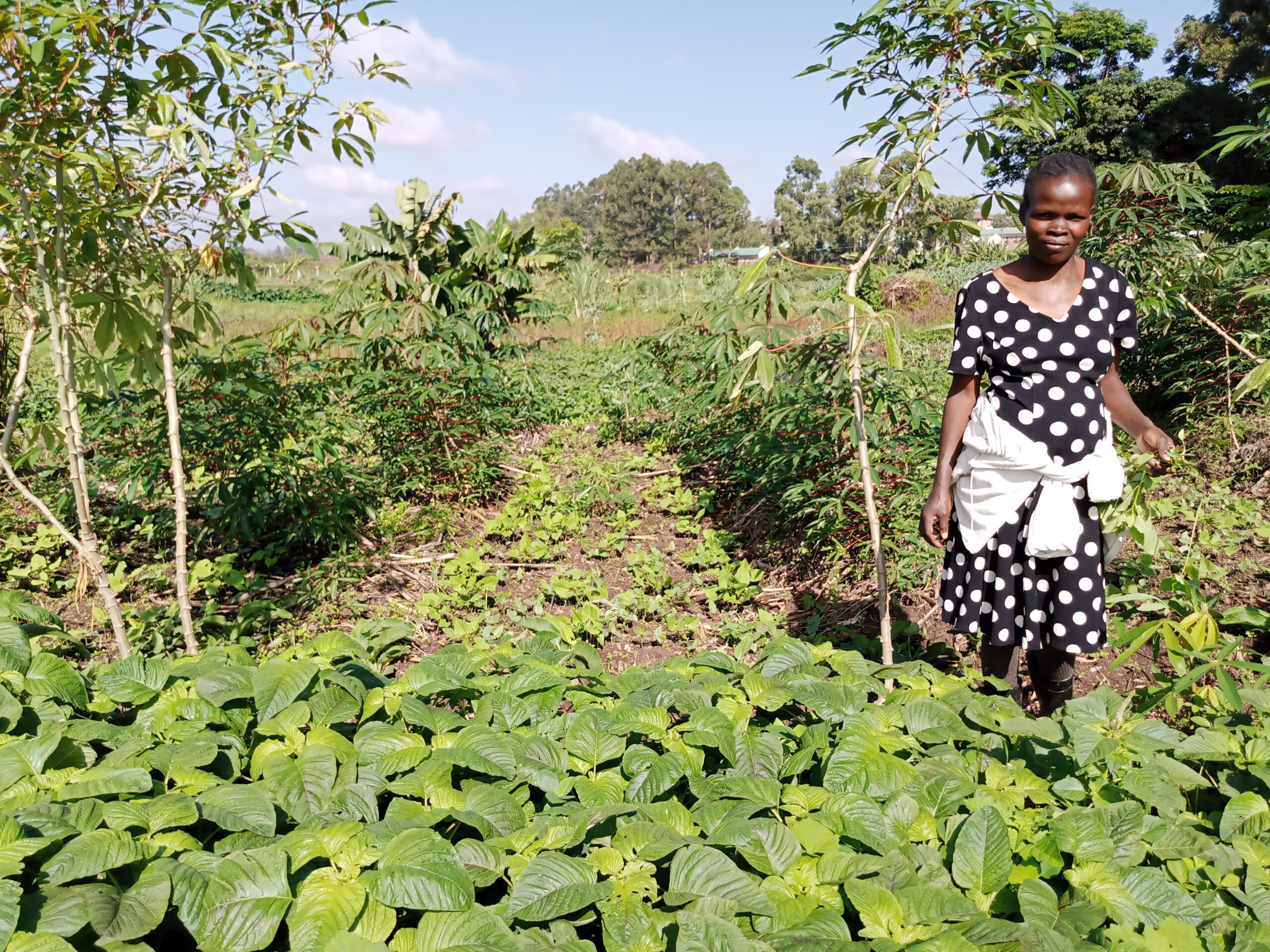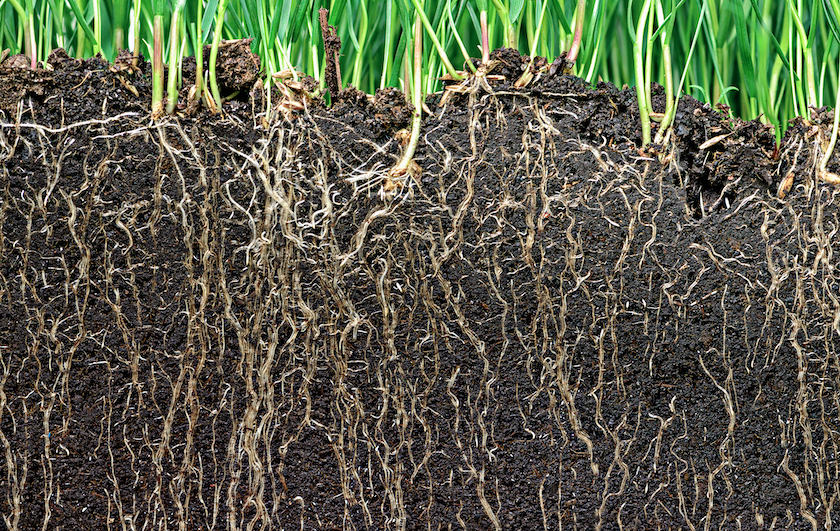High population growth and increasing demand for food have seen smallholder farmers in Kenya embrace soil science to cope with the vagaries of climate change.
After years of extreme weather conditions and poor agricultural practices that often resulted in land degradation and poor harvests, Kenya’s smallholder farmers are engaging in soil protection and rehabilitation practices.

In the last four years, Hellen Nekesa, a smallholder farmer in Kakamega County has had improved harvests.
She said this happened after she successfully adopted an amalgamation of science-backed regenerative agricultural practices.
“Some of the practices I have embraced over time include increasing crop diversity to boost soil health,” said Nekesa.
“Like most smallholder farmers across Kenya, I suffered because of lack of knowledge and information and almost gave up on farming due to soil degradation, weeds, pests, and vagaries of climate change.”
Her 2.5-acre farm has varieties of crops, including tubers, fruits, and vegetables, thriving with ease despite unpredictable weather conditions.
She has been enjoying farming for the last four years due to higher yields after almost giving up due to back-to-back corn and sugarcane mono-cropping disasters.
“Like most smallholder farmers across Kenya, I suffered because of lack of knowledge and information and almost gave up on farming due to soil degradation, weeds, pests, and vagaries of climate change,” she said.
![A smallholder farmer who practices mixed cropping, tending to vegetables on his farm in Kiambu, Kenya. [Tony Malesi]](https://allianceforscience.org/wp-content/uploads/2023/03/IMG_20221121_090341_371-scaled.jpg)
Before embracing crop rotation to benefit from seasonal changes and mixed cropping to enrich degraded soils after harvesting her corn crop, the yield was always low.
“After benefiting from the regular services of agricultural extension officers and various soil science and research programs by nonprofit organizations and initiatives like ‘Soil Protection and Rehabilitation Project’ by the German government, things are now better. I started growing cover crops to enhance soil fertility and suppress the growth of weeds. I have also been combining corn with cover crops to enhance nitrogen fixation,” she said.
“The move has prevented soil erosion, regulated soil moisture, and assisted in weed and pest control.”
To retain soil moisture for a long and improve the health of soils amid climate change-induced failed rains, smallholder farmers have adopted integrated soil fertility management and improved agronomic practices.
According to Cornel Ndanyi, an agricultural extension officer based in Kakamega, smallholder farmers are shunning poor farming practices that degrade land and are embracing sustainable soil management practices.
Soil protection and rehabilitation techniques
“Agricultural extension services by various nonprofit organizations, and initiatives by officers from state organizations such as Kenya Agricultural Research Institute (KARI), are beginning to bear fruit after more smallholder farmers started embracing soil protection and rehabilitation techniques,” said Ndanyi.
While emphasizing the critical role of healthy agricultural soils play in mitigating the effects of climate change, Ndanyi said, after oceans, soils are the second largest carbon storages and hence our enormous global responsibility to conserve and keep soils healthy.

Some of the pathways to adaptation that Kenyan smallholder farmers have embraced include soil management practices like conservation agriculture, integrated soil fertility management, soil erosion control, and improvement of soil structure and water-holding capacity.
“Others have opted for circular and regenerative agricultural practices like setting up soil and water conservation structures to stop erosion and pollution of nearby water bodies by siltation,” he said.
Improved agronomic practices
According to multiple studies, including a recent report by the UN’s Food and Agricultural Organization (FAO), the importance of healthy soils can’t be gainsaid as they are critical in addressing wide-ranging challenges such as food insecurity and climate change
To retain soil moisture for a long and improve the health of soils amid climate change-induced failed rains, smallholder farmers in Kiambu County have adopted integrated soil fertility management and improved agronomic practices.
![Geoffrey Mwangi, a smallholder farmer growing cover crops at his farm in Kiambu, Kenya. [Tony Malesi]](https://allianceforscience.org/wp-content/uploads/2023/03/IMG-20230316-WA0002.jpg)
It took Geoffrey Mwangi almost a year of alternately practising intercropping and growing cover crops on his degraded two-acre farm to rehabilitate it.
With little irrigation to complement his new crop husbandry efforts after a long spell of dismal corn farming, Mwangi hasn’t experienced crop failure in the last two years despite irregular weather patterns.
Lack of technical support and incentives
“I have never missed a harvest since I began embracing quick-maturing crops and practices like mixed cropping. Despite complaints from some farmers, my farming has remained productive whether it rains,” said Mwangi.
Despite the progress made in building the adaptive capacity of smallholder farmers, key agencies and multiple food security experts believe more still needs to be done.
The standard view is that there is a need for more detailed information, data, policies, and action plans on soil biodiversity/health at local and national levels to guide smallholder farmers.
“Farmers must be continuously trained and encouraged to make soils healthier by adopting sustainable soil management practices.”
“The adoption of sustainable soil management practices by farmers, as a basic premise for preserving soil biodiversity, remains low due to the lack of technical support, provision of incentives and enabling environments, and needs to be scaled up,” reads a recent media release by FAO.
According to Okwako Mpapale, a researcher at KARI, more smallholder farmers in rural communities must be encouraged to embrace soil science and get continuous support to boost food productivity and adapt to climate change.
![A smallholder farmer at his vegetable farm in Mumias, Kenya. [Tony Malesi]](https://allianceforscience.org/wp-content/uploads/2023/03/IMG-20230316-WA0004.jpg)
“Farmers must be continuously trained and encouraged to make soils healthier by adopting sustainable soil management practices,” said Mpapale.
He added that some, especially those whose farms are next to rivers or other water masses, should be encouraged to promote agroforestry systems to increase tree cover and ensure soils remain healthy.
______________________________
The writer is a consulting editor, with interests in Agriculture & Food Security, Water & Sanitation, Environmental Conservation, Public Health, and Climate Change.
Email: tonymalesy@gmail.com
